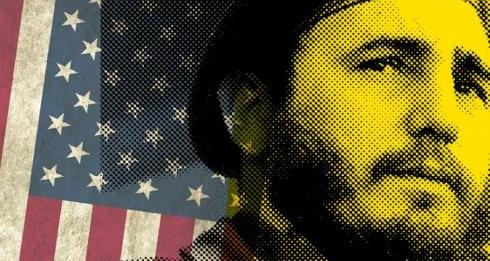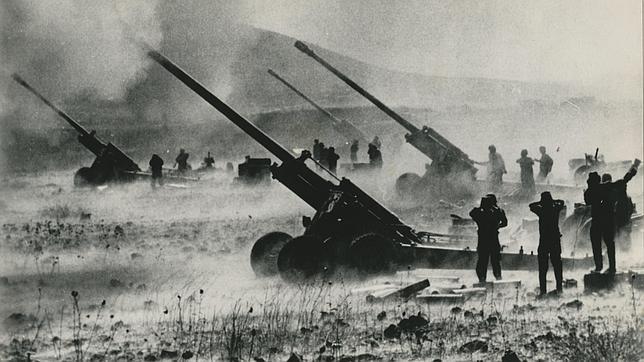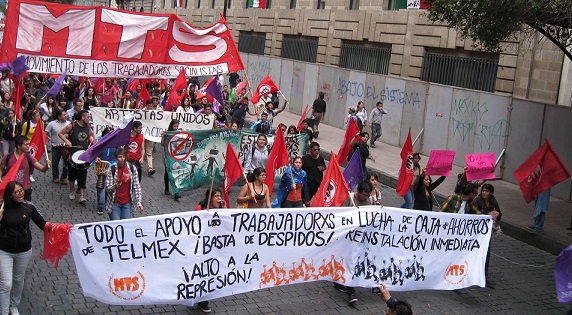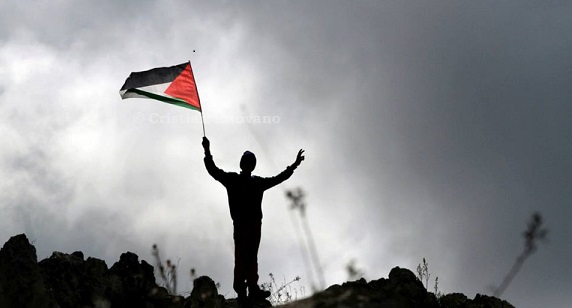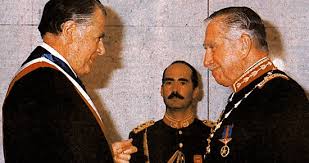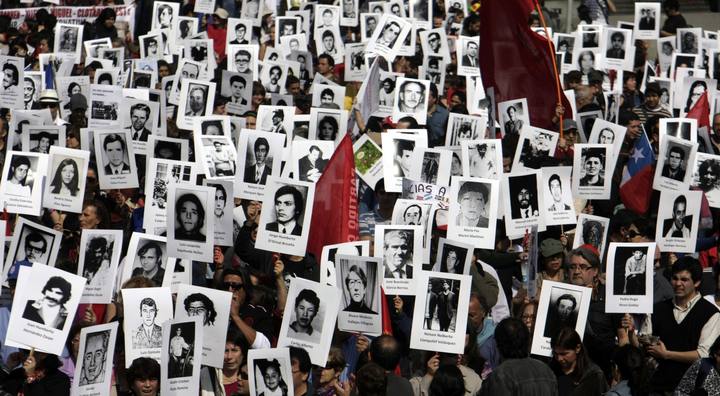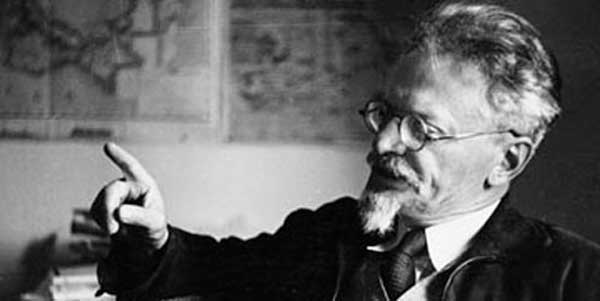60 years of occupation and genocide
The founding of the State of Israel
16/05/2008
On May 14, the State of Israel celebrated 60 years of existence. On
May 15, the Palestinian people commemorated 60 years since
the "Nakba," the catastrophe that produced the State of Israel by
expropriating lands held by Palestinians for a thousand years and
expelling a million people into exile. At the end of the eighteenth
century, the formation of national states fulfilled a progressive
function, by unifying markets and developing the productive forces.
In contrast, the formation of the State of Israel was a completely
reactionary solution to the Jewish question, beginning with the
creation of an artificial state, functional for the interests of
imperialism, as a colonial enclave intended to subjugate the
oppressed Arab peoples of the Middle East.
For centuries the Jews traveled through different regions,
practicing business and usury, the forms that capital acquired along
time before developing as a social force. Those "impure" professions
inhibited them from becoming integrated into the communities by the
express command of the ruling classes, since they were acting as
intermediaries between these classes and the impoverished rural
small producers through money-lending. When landlords raised taxes
on the Jews, they raised interest rates on the rural small
producers, who reacted against the Jews with violent lynchings
promoted by the same feudal lords who ended up expelling the Jews
from the region. These characteristics distinguished the Jews as a
people-class, as the great Belgian revolutionary Abraham León
indicated. Bourgeois revolutions in England, France and the Low
Countries permitted the progressive integration and assimilation of
the Jews into those societies. However, delayed bourgeois
development in Eastern Europe pushed the Jews toward
proletarianization, poverty, and isolated confinement in ghettos.
This separation allowed the bourgeoisie to use the Jews as
scapegoats for the sufferings of the great masses. By the end of the
nineteenth century, anti-semitism had acquired such virulence that
it was expressed through numerous pogroms, with thousands of Jews
murdered. These conditions created the flow of many people of Jewish
origin from Eastern Europe toward the workers’ parties, with, most
prominently, Leon Trotsky, Rosa Luxemburg, Lev Kamenev, David
Riazanov, etc. At the same time, in 1897, Zionism began to develop
as a political movement of a small sector of the Jewish bourgeoisie.
Theodore Herzl, its most prominent leader, maintained in his
book, "The Jewish State," that Jewish colonization of Palestine
represented the advance of Europe "as a wall against the barbarism"
of the Arab peoples. Herzl maintained that Palestine was "a land
without people for a people without a land," "forgetting" that the
Palestinians were historically inhabiting those lands. In preaching
Zionism, Herzl did not hesitate to meet with ministers of the
Tsarist autocracy, responsible for pogroms and anti-semitic
campaigns, who promised him help in exchange for persuading the Jews
to abandon their activism in the workers’ parties. While Zionism was
a minority movement, the development of Nazism and the genocide of 6
million Jews in the concentration camps during the Second World War
were used by England and the US as a support to set up the State of
Israel, a reactionary policy promoted by the same countries that
closed their borders to the millions of Jews who were fleeing the
Nazis.
The bases of the Zionist state
The decline of the Ottoman Empire, dominant in the Middle East up to
the end of the nineteenth century, opened the conditions for its
replacement by the developed capitalist powers England and France,
which divided up the region for themselves in 1915 through the Sykes-
Picot Treaty. Thus England took control of Palestine under a
protectorate. In 1917, with the aim of neutralizing the Arab
nationalist movements, England promoted the Balfour Declaration,
proposing the creation of "a Jewish national home in Palestine,"
permitting the entry of thousands of settlers. With British consent,
the Zionists bought lands from Palestinian peasants for a trifle and
did not hesitate to resort to violence when resistance arose. In
1935, England issued a decree that granted land ownership to anyone
who had at least a tower and a palisade [fence]. Overnight, the
Zionists set up thousands of towers and palisades and seized vast
stretches of land. In the same connection, "leftist" Zionists
established hundreds of "socialist" settlements (kibbutzim) as
military camps to hinder contacts between small Arab villages. From
the Histadrut (the Zionist labor union), the Zionists promoted the
separation of Jewish workers from the Palestinians and buying
merchandise in Jewish businesses. Future Prime Minister David Ben
Gurion said that the "forced transfer" of the Palestinians was
necessary to develop the bases of the Jewish state. Thus the
paramilitary militias of Etzel, Lehi and the Haganah (the bases of
the future army) were formed, spreading terror in the massacres of
Deir Yassin, Kfar Kassem, Abu Zabel, Hatsabi, etc.,
In 1947, the UN established the partition of Palestine by giving 63%
of the territory to the Zionists without any consultation whatsoever
with the Palestinian people. Resistance by the Palestinians was
crushed by the Zionist militias, wiping more than 500 small villages
off the map and forcing more than a million people to march into
forced exile.
On these bases the Jewish state was founded with the approval of
Stalin and US imperialism, which has been Israel’s material source
of financing until now. A racist state based on an army of permanent
occupation to maintain "a thousand-year war," as General Moshe Dayan
said, against the Arab peoples; among Israel’s wars, those of 1948,
1956, 1967, 1973, 1982 and 2006, stand out. A terrorist state that
legally practices torture, selective assassinations, and the
demolition of the houses of anyone "suspected" of terrorism. A state
that inherited from the Nazis their methods of ethnic cleansing,
which condemns Gaza to the isolation of a gigantic ghetto, while it
disrupts contact of the small West Bank villages by means of the
Apartheid Wall, by confiscating the most fertile lands, at the same
time that it keeps more than 10,000 Palestinians imprisoned and more
than 4 million without the right to return to their legitimate
lands. A theocratic state that segregates those who do not profess
Judaism and keeps the "Israeli Arabs" (20% of the population) as
second-class citizens.
Peace between Arabs and Jews will only be possible through the
destruction of that enclave of US imperialism and the struggle for a
workers’ and socialist Palestine occupying all its historical
territory, in the framework of a Federation of Workers’ Republics of
the Middle East, a task that can undertaken only by the workers and
rural small producers of the region.
Gaza, a gigantic ghetto
The Zionist state not only refused to recognize the sovereign will
of the Palestinian masses, voting for Hamas in the January 2006
elections, but, thanks to the collaborationist policy of Mahmoud
Abbas and Al Fatah, it isolated the Gaza Strip by land, sea and air
with the permission of the US, the European Union, and the
reactionary bourgeoisies of Egypt and Jordan. As the Nazis did to
the Jews, the State of Israel condemns more than 1.5 million
Palestinians to being besieged in a gigantic ghetto, where 80% of
the inhabitants depend on outside humanitarian aid, without being
able to escape, because of harassment by the Zionist army, Egyptian
police and shelling by F16 aircraft. The lack of access to potable
water, food and the most basic drugs has caused the birth of babies
with deformities and left pregnant women with anemia and
malnutrition, while the Zionist state monopolizes control of
supplying water, fuel and energy. This is the biggest humanitarian
crisis since 1967, when the Zionists occupied the West Bank and Gaza
at gunpoint during the Six-Day War. The peace plan devised in
Annapolis last December is part of the pax Zionista, the peace of
the graveyards.
Translation by Yosef M.
